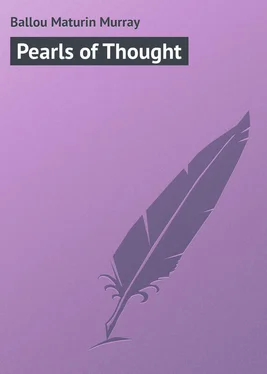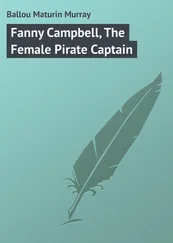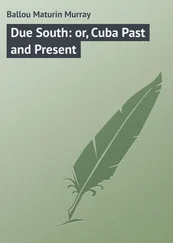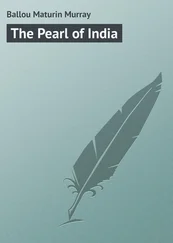Maturin Ballou - Pearls of Thought
Здесь есть возможность читать онлайн «Maturin Ballou - Pearls of Thought» — ознакомительный отрывок электронной книги совершенно бесплатно, а после прочтения отрывка купить полную версию. В некоторых случаях можно слушать аудио, скачать через торрент в формате fb2 и присутствует краткое содержание. Жанр: foreign_prose, foreign_language, на английском языке. Описание произведения, (предисловие) а так же отзывы посетителей доступны на портале библиотеки ЛибКат.
- Название:Pearls of Thought
- Автор:
- Жанр:
- Год:неизвестен
- ISBN:нет данных
- Рейтинг книги:5 / 5. Голосов: 1
-
Избранное:Добавить в избранное
- Отзывы:
-
Ваша оценка:
- 100
- 1
- 2
- 3
- 4
- 5
Pearls of Thought: краткое содержание, описание и аннотация
Предлагаем к чтению аннотацию, описание, краткое содержание или предисловие (зависит от того, что написал сам автор книги «Pearls of Thought»). Если вы не нашли необходимую информацию о книге — напишите в комментариях, мы постараемся отыскать её.
Pearls of Thought — читать онлайн ознакомительный отрывок
Ниже представлен текст книги, разбитый по страницам. Система сохранения места последней прочитанной страницы, позволяет с удобством читать онлайн бесплатно книгу «Pearls of Thought», без необходимости каждый раз заново искать на чём Вы остановились. Поставьте закладку, и сможете в любой момент перейти на страницу, на которой закончили чтение.
Интервал:
Закладка:
The legitimate aim of criticism is to direct attention to the excellent. The bad will dig its own grave, and the imperfect may be safely left to that final neglect from which no amount of present undeserved popularity can rescue it. — Bovée.
There are some critics who change everything that comes under their hands to gold, but to this privilege of Midas they join sometimes his ears! — J. Petit Senn.
Cruelty.– Cruelty, the sign of currish kind. — Spenser.
One of the ill effects of cruelty is that it makes the by-standers cruel. How hard the English people grew in the time of Henry VIII. and Bloody Mary. — Charles Buxton.
Man's inhumanity to man makes countless thousands mourn. — Burns.
Cruelty, like every other vice, requires no motive outside of itself; it only requires opportunity. — George Eliot.
Cultivation.– Cultivation is the economy of force. — Liebig.
The highest purpose of intellectual cultivation is to give a man a perfect knowledge and mastery of his own inner self; to render our consciousness its own light and its own mirror. Hence there is the less reason to be surprised at our inability to enter fully into the feelings and characters of others. No one who has not a complete knowledge of himself will ever have a true understanding of another. — Novalis.
Neither the naked hand, nor the understanding, left to itself, can do much; the work is accomplished by instruments and helps of which the need is not less for the understanding than the hand. — Bacon.
… Without art, a nation is a soulless body; without science, a straying wanderer. Without warmth and light, nature cannot thrive, nor humanity increase: the light and warmth of humanity is "art and science." — Kozlay.
Cunning.– Cunning has effect from the credulity of others, rather than from the abilities of those who are cunning. It requires no extraordinary talents to lie and deceive. — Johnson.
Cleverness and cunning are incompatible. I never saw them united. The latter is the resource of the weak, and is only natural to them; children and fools are always cunning, but clever people never. — Byron.
Discourage cunning in a child; cunning is the ape of wisdom. — Locke.
Cunning signifies especially a habit or gift of overreaching, accompanied with enjoyment and a sense of superiority. It is associated with small and dull conceit, and with an absolute want of sympathy or affection. It is the intensest rendering of vulgarity, absolute and utter. — Ruskin.
Curiosity.– A person who is too nice an observer of the business of the crowd, like one who is too curious in observing the labor of the bees, will often be stung for his curiosity. — Pope.
The gratification of curiosity rather frees us from uneasiness than confers pleasure; we are more pained by ignorance than delighted by instruction. Curiosity is the thirst of the soul. — Johnson.
Custom.– The despotism of custom is on the wane; we are not content to know that things are; we ask whether they ought to be. — John Stuart Mill.
Immemorial custom is transcendent law. — Menu.
In this great society wide lying around us, a critical analysis would find very few spontaneous actions. It is almost all custom and gross sense. — Emerson.
Custom doth make dotards of us all. — Carlyle.
Cynics.– It will be very generally found that those who sneer habitually at human nature, and affect to despise it, are among its worst and least pleasant samples. — Dickens.
Cynicism is old at twenty. — Bulwer-Lytton.
D
Dandy.– A dandy is a clothes-wearing man, – a man whose trade, office, and existence consist in the wearing of clothes. Every faculty of his soul, spirit, person, and purse is heroically consecrated to this one object, – the wearing of clothes wisely and well; so that as others dress to live, he lives to dress. — Carlyle.
A fool may have his coat embroidered with gold, but it is a fool's coat still. — Rivarol.
Danger.– It is better to meet danger than to wait for it. He that is on a lee shore, and foresees a hurricane, stands out to sea, and encounters a storm to avoid a shipwreck. — Colton.
Death.– It is not death, it is dying, that alarms me. — Montaigne.
What is death? To go out like a light, and in a sweet trance to forget ourselves and all the passing phenomena of the day, as we forget the phantoms of a fleeting dream; to form, as in a dream, new connections with God's world; to enter into a more exalted sphere, and to make a new step up man's graduated ascent of creation. — Zschokke.
Heaven gives its favorites early death. — Byron.
Our respect for the dead, when they are just dead, is something wonderful, and the way we show it more wonderful still. We show it with black feathers and black horses; we show it with black dresses and black heraldries; we show it with costly obelisks and sculptures of sorrow, which spoil half of our beautiful cathedrals. We show it with frightful gratings and vaults, and lids of dismal stone, in the midst of the quiet grass; and last, and not least, we show it by permitting ourselves to tell any number of falsehoods we think amiable or credible in the epitaph. — Ruskin.
There are remedies for all things but death. — Carlyle.
We understand death for the first time when he puts his hand upon one whom we love. — Mme. de Staël.
Too early fitted for a better state. — Dryden.
Death, the dry pedant, spares neither the rose nor the thistle, nor does he forget the solitary blade of grass in the distant waste. He destroys thoroughly and unceasingly. Everywhere we may see how he crushes to dust plants and beasts, men and their works. Even the Egyptian pyramids, that would seem to defy him, are trophies of his power, – monuments of decay, graves of primeval kings. — Heinrich Heine.
There is no fireside, howsoe'er defended, but has one vacant chair! — Longfellow.
And though mine arm should conquer twenty worlds, there's a lean fellow beats all conquerors. — Thomas Dekker.
Death is a commingling of eternity with time. — Goethe.
To the Christian, whose life has been dark with brooding cares that would not lift themselves, and on whom chilling rains of sorrow have fallen at intervals through all his years, death is but the clearing-up shower; and just behind it are the songs of angels, and the serenity and glory of heaven. — Beecher.
That golden key that opes the palace of eternity. — Milton.
When death gives us a long lease of life, it takes as hostages all those whom we have loved. — Madame Necker.
Man makes a death which nature never made. — Young.
The golden ripple on the wall came back again, and nothing else stirred in the room. The old, old fashion! The fashion that came in with our first garments, and will last unchanged until our race has run its course, and the wide firmament is rolled up like a scroll. The old, old fashion – Death! Oh, thank God, all who see it, for that older fashion yet – of Immortality! — Dickens.
God's finger touched him, and he slept. — Tennyson.
Then shall the dust return to the earth as it was, and the spirit shall return unto God who gave it. — Bible.
Nature intends that, at fixed periods, men should succeed each other by the instrumentality of death. We shall never outwit Nature; we shall die as usual. — Fontenelle.
Читать дальшеИнтервал:
Закладка:
Похожие книги на «Pearls of Thought»
Представляем Вашему вниманию похожие книги на «Pearls of Thought» списком для выбора. Мы отобрали схожую по названию и смыслу литературу в надежде предоставить читателям больше вариантов отыскать новые, интересные, ещё непрочитанные произведения.
Обсуждение, отзывы о книге «Pearls of Thought» и просто собственные мнения читателей. Оставьте ваши комментарии, напишите, что Вы думаете о произведении, его смысле или главных героях. Укажите что конкретно понравилось, а что нет, и почему Вы так считаете.












